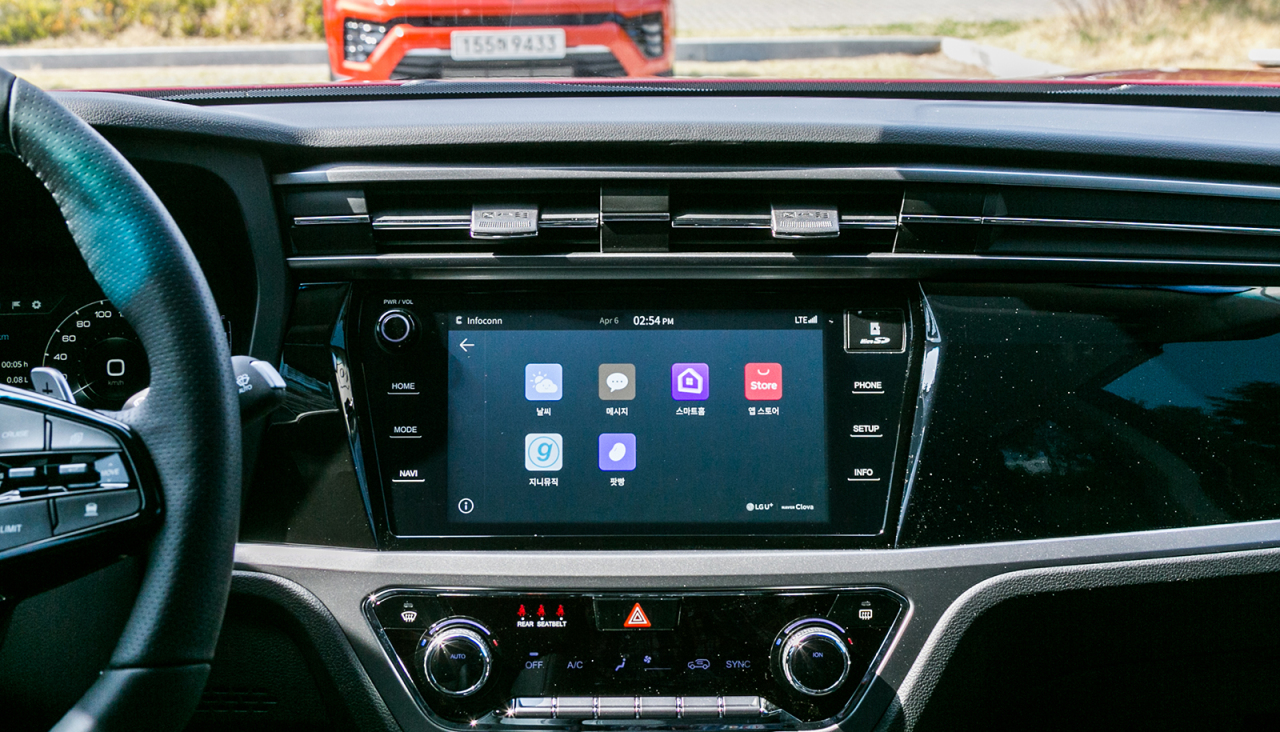[Behind the Wheel] Re:spec Korando proves SsangYong Motor’s reason to survive
Automaker’s ambitious model returns with useful voice recognition system
By Kim Da-solPublished : May 25, 2020 - 14:26

More often than not, when automakers launch their face-lifted models as something “new,” there are little design or functional changes, only a price increase.
But that is not the case with SsangYong Motor’ relaunched subcompact flagship sport utility vehicle in April. Its upgraded Re:spec edition came with dramatically changed interiors and is fully equipped with a connected car service, with little price increase.
The name Re:spec stands for the automaker’s “respect for customers and to rewrite specifications of the vehicle,” according to the carmaker.
There not many changes to the exterior of the Korando Re:spec edition from the previous revamped version which was launched in February last year. But driving Re:spec Korando was full of convenience and joy when The Korea Herald reporter test-drove the model on May 15.
For one, it has got a lot smarter through InfoConn.
InfoConn refers to the combination of information, entertainment and mobile connectivity, which allows a driver to control the system inside the car via LG U Plus’ network, as well as activate home internet of things devices.

Before getting in the car, the reporter turned on the vehicle through a remote starting system via a smart phone application. A driver can remotely start the car and turn on the air conditioner, which can be useful during summer.
Once inside the car, the reporter clicked on the voice recognition button attached on the steering wheel and said “let’s go to Hyundai Department Store.” In about one second, the navigation screen showed the fastest way to the nearest Hyundai Department Store on the navigation screen.
Re:spec Korando’s navigation, which works based on the artificial intelligence platform Clova of internet giant Naver, easily recognized the driver’s voice.
While driving, just by talking to the voice recognition system after clicking the button, it was easy to play music and even send text messages. It clearly delivered what was promised.
Another strength of Re:spec Korando’s Infoconn was the function that automatically connects the driver to the call center when the air bags unfold. This will allow the driver to receive timely emergency help, SsangYong Motors said. If the call does not get through, the emergency rescue service team will be immediately dispatched to the scene of accident, it added.
But the InfoConn service is not complimentary. The price begins from an affordable 8,800 won ($7.10) per month for premium service which includes unlimited music, while it costs 11,000 won for all-in-one service including real-time traffic navigation and remote control functions. For the air bag alert system, a driver needs to pay an extra 2,200 won per month.
Although one may see that Korando has been upgraded with a mere voice recognition function, Re:spec Korando means a lot to SsangYong Motors, proving the automaker’s capability to produce a vehicle with high-tech functions in the competitive connected car technology market.
Re:spec Korando can appeal to first-time car customers who seek a reasonable price but still want to try out the latest high-tech functions such as voice recognition.
By Kim Da-sol (ddd@heraldcorp.com)
The Korea Herald ratings
Design: 3 stars
Fuel economy: 3 stars
Safety: 4 stars
Price: 4 stars
Overall: 14 stars







![[KH Explains] Hyundai's full hybrid edge to pay off amid slow transition to pure EVs](http://res.heraldm.com/phpwas/restmb_idxmake.php?idx=644&simg=/content/image/2024/04/18/20240418050645_0.jpg&u=20240419100350)







![[From the Scene] Monks, Buddhists hail return of remains of Buddhas](http://res.heraldm.com/phpwas/restmb_idxmake.php?idx=652&simg=/content/image/2024/04/19/20240419050617_0.jpg&u=20240419175937)

![[KH Explains] Hyundai's full hybrid edge to pay off amid slow transition to pure EVs](http://res.heraldm.com/phpwas/restmb_idxmake.php?idx=652&simg=/content/image/2024/04/18/20240418050645_0.jpg&u=20240419100350)

![[Today’s K-pop] Illit drops debut single remix](http://res.heraldm.com/phpwas/restmb_idxmake.php?idx=642&simg=/content/image/2024/04/19/20240419050612_0.jpg&u=)